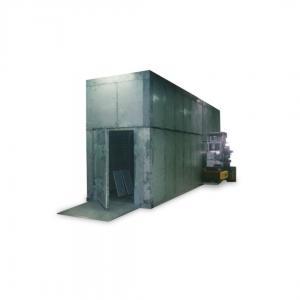
The process of making parts from sheet metal through bending, cutting, or stamping is called sheet metal fabrication. The more complex version of this, where a fabricator takes unique blueprints and converts them in parts, components, and prototypes, is called custom metal fabrication. Nowadays, conventional machining is paired with CNC machining for the best results. In CNC machining, a machine can be programmed with instructions to deliver precise cuts to transform the sheet metal into a part or finished product.
In order to ensure that the end result of the process does not fall short, there are some strict rules:
Rules in bending
Press brakes are utilized to bend metal sheets into the desired geometry. To avoid part reorientation, bends in a single plane are created in one direction only. Small bends in thick, bigger parts must be avoided at any cost as they have the tendency to be imprecise. More importantly, ensuring that the inside bend radius is at least one material thickness away prevents distorted or fractured parts. In general, it is best to make sure that bends are six times the thickness of the material at the minimum.
Rules in making holes and slots
As expected, holes and slots can be twisted when formed near bends. The precise distance of their placement from a bend is affected by three things, namely bend radius, hole and slot diameter, and material or metal sheet thickness. Holes should be set with at least 2.5 times the sheet thickness added by bend radius, while slots must be 4 times the thickness plus the bend radius. However, both of them must be placed away from the edge by at least 2 times the material thickness.
Rules in creating notches and tabs
During custom metal fabrication, a part design may require notches and tabs. When it comes to dimensions, a notch should have an equal thickness as the material or be at least 1mm thick. Moreover, a notch length should not be greater than 5 times its width. This rule applies to tabs as well but they should have more thickness than notches, being at least 2 times the thickness of the sheet metal.
As you can see, custom metal fabrication is a complex process, which is why it is important to only go with the most reliable fabricators. Call 4 Way Metal today for all your custom fabrication needs – you won’t be disappointed!







